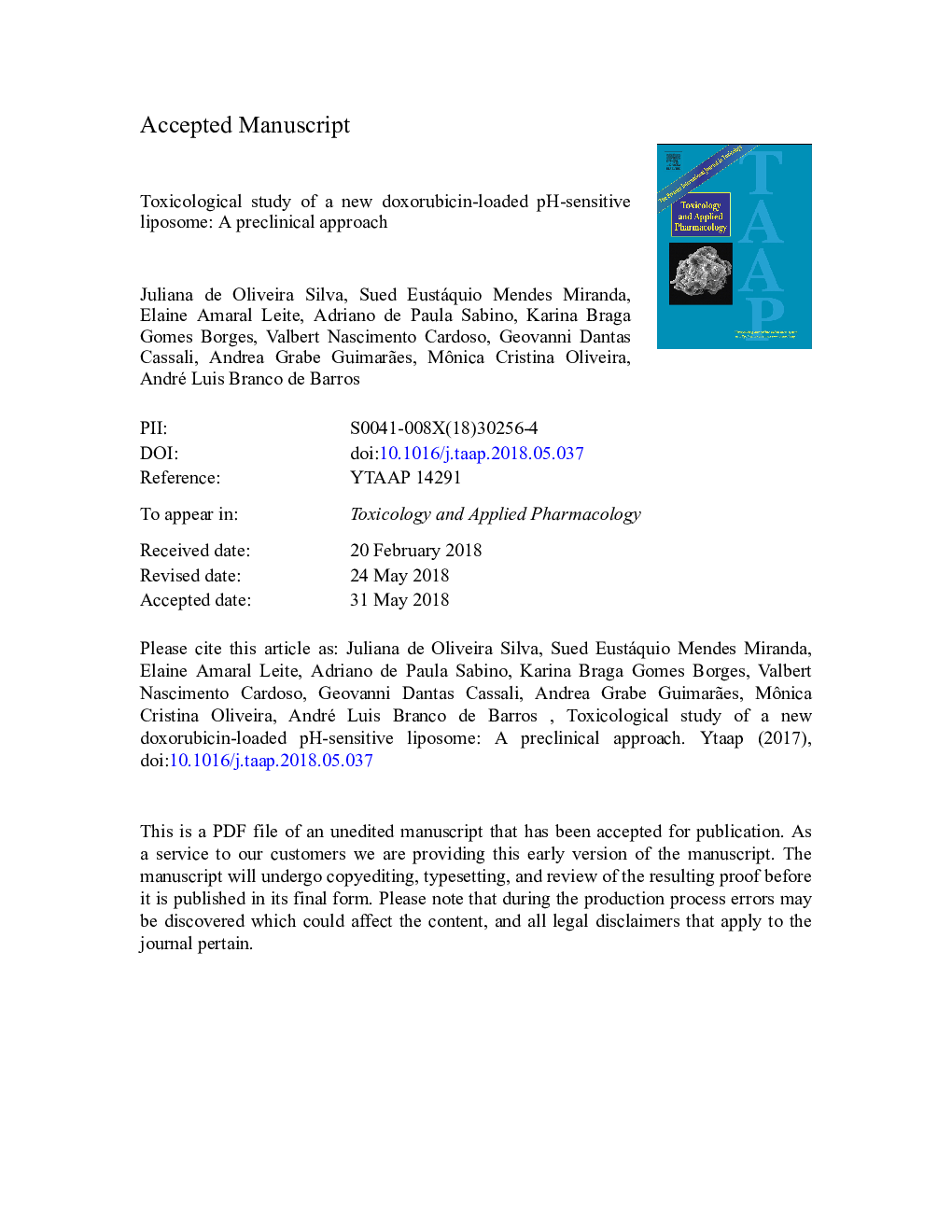| Article ID | Journal | Published Year | Pages | File Type |
|---|---|---|---|---|
| 8538388 | Toxicology and Applied Pharmacology | 2018 | 44 Pages |
Abstract
Doxorubicin (DOX) is widely used in cancer treatment, however, the use of this drug is often limited due to its cardiotoxic side effects. In order to avoid these adverse effects, the encapsulation of DOX into nanosystems has been used in the last decades. In this context, pH-sensitive liposomes have been shown promising for delivering cytotoxic agents into tumor cells, however, the lack of information about in vivo toxicity of this nanocarrier has impaired translational studies. Therefore, the aim of this work was to investigate the acute toxicity and cardiotoxicity of DOX-loading pH-sensitive liposomes (SpHL-DOX). To achieve this, female BALB/c mice, after intravenous administration, were monitored by means of clinical, laboratory, histopathological and electrocardiographic (ECG) analyses. Results indicate that SpHL was able to prevent renal toxicity and the hepatic injury was less extensive than free DOX. In addition, lower body weight loss was associated with less ECG QT interval prolongation to animals receiving SpHL-DOX (14.6â¯Â±â¯5.2%) compared to animals receiving free DOX (35.7â¯Â±â¯4.0%) or non-pH-sensitive liposomes (nSpHL-DOX) (47.0â¯Â±â¯9.8%). These results corroborate with SpHL-DOX biodistribution studies published by our group. In conclusion, the SpHL-DOX showed less toxic effects on mice compared to free DOX or nSpHL-DOX indicating that SpHL-DOX is a promising strategy to reduce the serious cardiotoxic effects of DOX.
Keywords
CHOLRBCALTHEPESOECDDOXMTDWBLCK-MBHSPCCHEMSPDIDLSPolyethylen glycolDSPE4-(2-Hydroxyethyl)piperazine-1-ethanesulfonic acidDNAH&EROSASTAspartate aminotransferaseAlanine aminotransferaseEDTAdeoxyribonucleic acidethylenediamine tetraacetic acidelectrocardiogramECGanalysis of varianceANOVAMaximum tolerated doseDoxorubicinOrganization for Economic Co-operation and DevelopmentAcute toxicityCardiotoxicitypolydispersity indexHeart ratepH-sensitive liposomepH-sensitive liposomesHematoxylin and EosinDynamic Light ScatteringPEGDOPEhigh performance liquid chromatographyHPLCcholesterolCholesteryl hemisuccinatered blood cell
Related Topics
Life Sciences
Environmental Science
Health, Toxicology and Mutagenesis
Authors
Juliana de Oliveira Silva, Sued Eustáquio Mendes Miranda, Elaine Amaral Leite, Adriano de Paula Sabino, Karina Braga Gomes Borges, Valbert Nascimento Cardoso, Geovanni Dantas Cassali, Andrea Grabe Guimarães, Mônica Cristina Oliveira,
